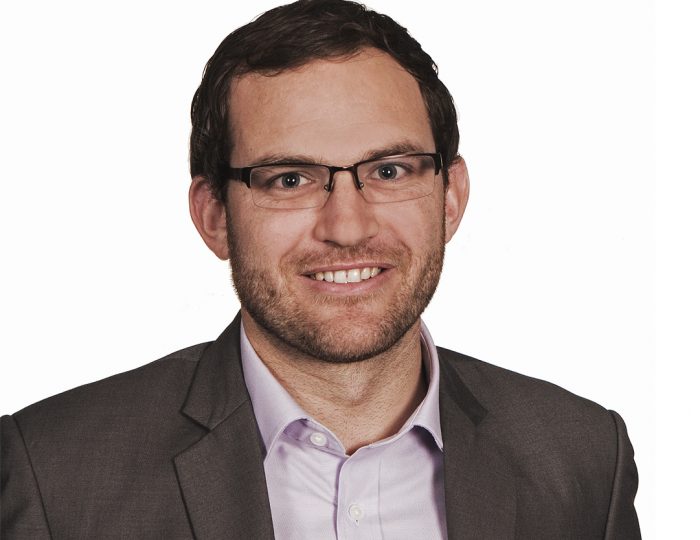
Modern Slavery is Everywhere | An Interview with Quintin Lake
‘I wouldn’t recommend getting lost in a desert,’ laughs Quintin Lake. We’re in the middle of a conversation about the founding of Fifty Eight, and how an accidental detour led to a startling discovery.
40 minutes’ drive outside of Abu Dhabi, Quintin and his wife Angela came across a labour camp. It was a walled city with no way in or out except via the strictly regulated company buses. Forced labour in the scorching desert heat. ‘They were there for their work only, not for any part of who they were. The workers were to do the job for as long and as hard as they could, that was it’. Quintin and Angela went home from that trip changed people and, three years later, Fifty Eight began.
Fifty Eight works with companies, academic institutions, and the public sector to improve working conditions in global supply chains and seeks to address the challenges of modern slavery. It was seeing forced labour up close in a UAE desert that Quintin pinpoints as a key moment for its beginnings.
Globally there are between 21 and 45 million people in some form of slave labour.
21 million is the conservative estimate given by the International Labour Organisation. ILO has calculated that half of these people are enslaved in the private sector – directly within companies or their supply chains. 13,000 people across the UK are in forced labour.
Statistics are hard to get your head around, and it is only when you are confronted by the stark reality of these numbers representing real people that the reality of modern slavery hits home. And so it was for Quintin and Angela in Abu Dhabi: ‘I’d seen glimpses of slave labour growing up in South East Asia and the Middle East, but had never truly realised the extent of it.
…Seeing the individuals, hearing their stories… something changed’.
Investigating further, the Lakes uncovered more shocking statistics at every turn: trading in people is one of the most lucrative industries in the world, second only to drug trafficking. The annual illegal profits from the forced labour of people amount to more than $150bn. ‘We visited a company helping create decent work for women who had been trafficked in India, Freeset. Their founder, Kerry Hilton said something that has never left us,’ Quintin explains,
‘if business is the reason people are enslaved, business should be the way people find freedom’.
With one simple question of
‘how can we use our skills to make a difference?’
Quintin and Angela began to pray and research possible avenues for action. As they delved deeper into both business and Scripture, they discovered something of what God had to say on the matter. Isaiah 58 became their go-to passage, especially verse 6, which speaks of true worship as setting the oppressed free and getting rid of exploitation in the workplace.
Fifty Eight was born from a passion to make a difference, to pursue God’s heart for justice in the workplace, and to see business done well. Business is where God provides quality of life for people, and Quintin and Angela are uncompromising in their desire to ensure people are treated well and have good work.
What does that look like practically? It is a combination of research, education, and training. It also involves reinvesting profits into SMEs and organisations that are committed to tackling the root causes of modern slavery through job creation and education.
It’s not just underground brothels in Cambodia or labour camps in the Emirates; modern slavery is everywhere.
It can come in the form of workers trapped by crippling recruitment or travel fees, unable to leave before paying off their debt. These people can be cooks, cleaners, security guards… there is no place untouched by workplace exploitation.
As businesses become more aware of this widespread abuse, they are looking to discover ‘good practice’, to work out what is making a difference, and to introduce policies which will protect their workers. Through its services, Fifty Eight aims to help them achieve this goal.
But what does fighting modern slavery look like for us, in our everyday, ordinary lives? Quintin shared some top tips for those who want to make a difference:
- Don’t think ‘this doesn’t affect me’ or ‘this wouldn’t affect my workplace/business’ – exploitation is often hidden, and supply chains are frequently less than transparent. Work out who in your business you could have a conversation with about slavery.
- Ask companies online ‘do you know who sewed my clothes?’ or ‘who picked my cocoa?’ – Think about your favourite brands for anything you buy. Start to ask questions and interact with them via twitter and Facebook. As a consumer, you have a great deal of power. The more people ask the questions, the more likely big businesses are to begin investigating their supply chains and their workers’ potentially exploitative conditions.
- Come along to the LICC event on June 21st. We will be exploring this issue further, highlighting ways we can engage, and offering discussion around the core theological questions facing Christians in this area.
Faith and Confronting Modern Slavery takes place at LICC on 21st June at 6.30pm. Book Tickets here for Faith and Confronting Modern Slavery.

Author
Nell Goddard